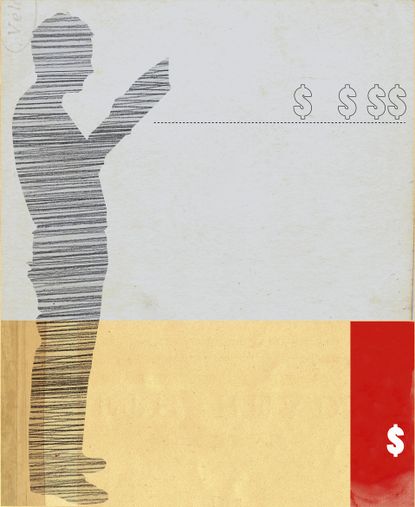Nobel Prize winner Angus Deaton, and the value of mundane economic scholarship
Sexy economic "theories" often aren't nearly as valuable as slowly grinding through actual real-world data


The Scottish-born, Princeton-based economist Angus Deaton — the winner of this year's Nobel Prize in economics — has made many important contributions in many areas of economics. And it seems he's not getting the prize for one particular breakthrough, as, say, Paul Krugman did for his contributions to international trade theory, but rather for his entire body of work.
But let's focus on one of Deaton's accomplishments. One of the most fascinating aspects of his scholarship is Deaton's meticulous work on measuring poverty, consumption, and welfare in developing countries. As Alex Tabarrok points out, measuring standards of living in poor countries is hard, and it's not just the fact that data is often hard to come by. (Deaton was one of the people who pioneered the use of surveys to get reliable data in countries where official data is iffy.) The traditional way to measure living standards across countries is to use exchange rates. But this method is very crude, because most of the goods that people consume (especially in developing countries) aren't traded across borders. Services in developing countries tend to be very cheap, which means that the same dollar might actually buy more goods and services for the average family in a developing country than you would guess by pricing an average basket of goods and looking at how much it costs in that country versus another.
There are more tricky questions, too, as Tabarrok points out: "Americans consume a lot of cheese, the Chinese don't. Is this because the Chinese are too poor to consume cheese or because tastes differ? How you answer this question makes a difference for understanding welfare."
Subscribe to The Week
Escape your echo chamber. Get the facts behind the news, plus analysis from multiple perspectives.

Sign up for The Week's Free Newsletters
From our morning news briefing to a weekly Good News Newsletter, get the best of The Week delivered directly to your inbox.
From our morning news briefing to a weekly Good News Newsletter, get the best of The Week delivered directly to your inbox.
And if you think measuring standard of living at one point in time is hard, try doing it across time in a consistent way.
Deaton's work is not only impressive, it is extremely important. We can't figure out anything about poverty in the developing world if we're not even able to measure it. This is not some flashy theoretical achievement. Instead, Deaton's scholarship was achieved by slowly going through the grind of data, bit by bit, and being clever about it. It's an achievement that doesn't just stand on its own, but helps other economists and other researchers do a much better job. In other words, it's a humble achievement.
It's the kind of achievement that economists should be proud of.
After all, economics, like all social science, suffers from a sad epistemological problem. Most of us still remember how economics befouled itself in the aftermath of the 2008 financial crisis.
Economics isn't a science in the sense that physics is. This is actually fine — until economists like to think they are scientists. Galileo proved that heavier objects fall at the same speed as lighter ones by putting together elaborate experiments that could hold all other variables constant. We can't create an Earth 2 where everything is the same except Fed interest rates, and see if there's another financial crisis. This means that all theoretical work in macroeconomics, though certainly not valueless, is not scientific in the proper sense. It is, instead, theory, and theory that cannot be validated by experiment.
Again, there's nothing wrong with that, per se, but it means that most economics is valuable in the way that, say, history is valuable. Nobody should be ignorant of history, and history holds many lessons for all of us. But no one would say that the laws of history propounded by historians like Edward Gibbon or Arnold Toynbee are "laws" in the sense that Newton's laws of thermodynamics are laws. It's when we start to believe they are that we run into trouble.
Economic theory is valuable, but so is economic work that doesn't try to theorize too much and instead sticks close to the ground, where observations are fairly reliable. This work tries to measure and assess what is actually going on, rather than build elaborate theoretical edifices. Angus Deaton did important theoretical work, too. But what truly impresses me, and what I hope we get more of thanks to this award, is his more mundane-seeming, but actually stunningly important work.
Create an account with the same email registered to your subscription to unlock access.
Sign up for Today's Best Articles in your inbox
A free daily email with the biggest news stories of the day – and the best features from TheWeek.com
Pascal-Emmanuel Gobry is a writer and fellow at the Ethics and Public Policy Center. His writing has appeared at Forbes, The Atlantic, First Things, Commentary Magazine, The Daily Beast, The Federalist, Quartz, and other places. He lives in Paris with his beloved wife and daughter.
-
 'Make legal immigration a more plausible option'
'Make legal immigration a more plausible option'Instant Opinion Opinion, comment and editorials of the day
By Harold Maass, The Week US Published
-
 LA-to-Las Vegas high-speed rail line breaks ground
LA-to-Las Vegas high-speed rail line breaks groundSpeed Read The railway will be ready as soon as 2028
By Peter Weber, The Week US Published
-
 Israel's military intelligence chief resigns
Israel's military intelligence chief resignsSpeed Read Maj. Gen. Aharon Haliva is the first leader to quit for failing to prevent the Hamas attack in October
By Justin Klawans, The Week US Published